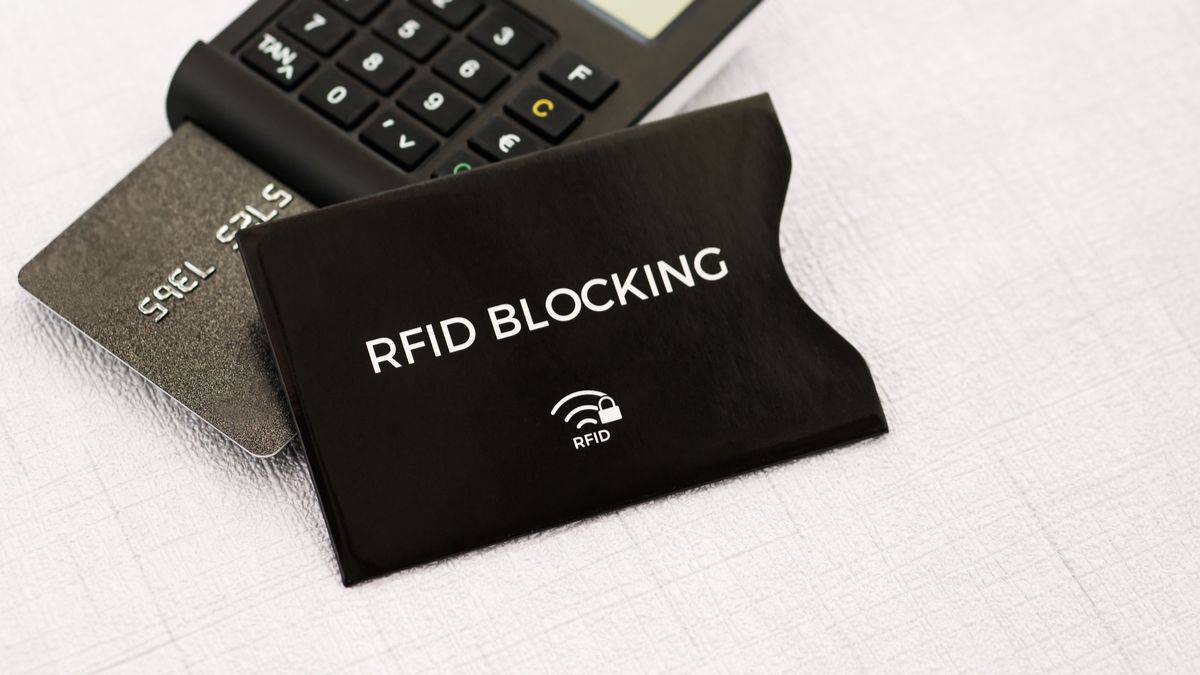Quick Links
RFID-blocking wallets are supposed to prevent your RFID card information from being stolen. But do they really work? Even then, is the danger real enough to make a purchase worth it? Let's find out.
What Is RFID Blocking?
Radio-frequency Identification (RFID) technology uses the energy from an electromagnetic field to power a small chip that sends information out in response. For example, the RFID chip in your credit card contains information needed to authorize transactions, and the RFID chip in an access card has a code that opens doors or restricted systems.
Certain materials, especially conductive metals, prevent electromagnetic waves from passing through them. RFID-blocking wallets have card sleeves (or sometimes entire wallets) made from materials that don't let radio waves through.
That way, the chip won't power up, and even if it did, its signal wouldn't get through the wallet. The bottom line is that you can't read the RFID card through the wallet.
Why Would You Want to Block Your Cards?
RFID tags are passive devices that happily send out their information to anyone who's willing to listen. That sounds like a recipe for bad security, but RFID tags that can be scanned over long distances are usually not loaded with sensitive information. They are used to track stock or packages, for example. It doesn't matter who reads that information since it's not a secret.
Concerns about RFID cards have been raised as more NFC-reading devices make it into the hands of the general population. NFC (Near-Field Communication) is a very similar technology to RFID, with a key difference being range. NFC chips can only be read ranges measured in inches. NFC is essentially a special type of RFID.
This is how "tap-and-pay" cards work with payment terminals equipped with NFC readers. If you have a smartphone capable of making contactless payments, it can be used to read NFC cards as well. So what's to stop someone from using their phone to copy your NFC card?
That's exactly the situation RFID blocking wallets are supposed to prevent. The idea is that someone could simply bring their NFC reader close to your wallet and then copy your cards. They could then have the device reproduce the RFID information to make payments.
Are RFID Protection Wallets Worth It?
There's no doubt that the concept behind RFID blocking cards is solid. In 2012 a demonstration of how an Android phone could steal credit card details wirelessly left no one in doubt of the threat. The thing is, these sorts of attacks just don't seem to happen in the wild.
It makes sense that NFC skimming could be used against specific high-value targets who carry valuable information, but it's hardly worth walking around a crowded mall stealing credit card information from random strangers. Not only is there a real physical risk to pulling off this specific heist in public, but it's also far easier to steal credit card information using malware or phishing techniques.
As a cardholder, you're also protected against card fraud by your card issuer, and none of them require the use of RFID blocking wallets to qualify as far as we are aware. So at most you may save yourself from a minor inconvenience as stolen funds are replaced.
If you are a high-value target, such as an employee with an access card to valuable or sensitive assets, then using an RFID-blocking sleeve or wallet is sensible.
So, an RFID blocking wallet is worth it for that peace of mind that this low-probability attack could be used against you. But we don't think it should be a deciding factor when choosing your next wallet unless you have a high-risk profile. Then again, the best RFID-blocking wallets are also just great wallets. So why not?

